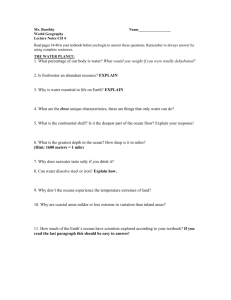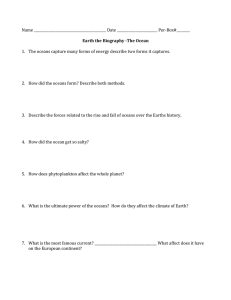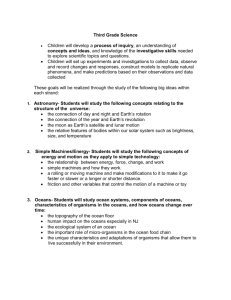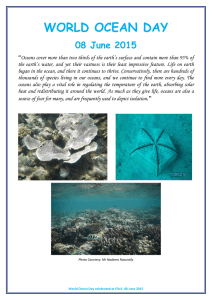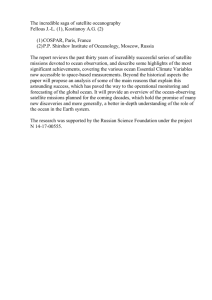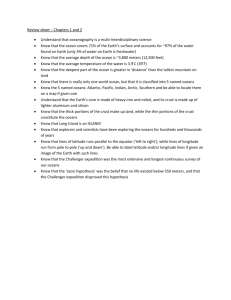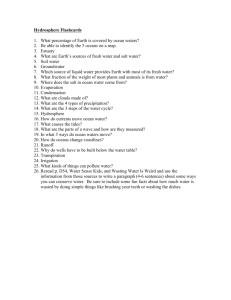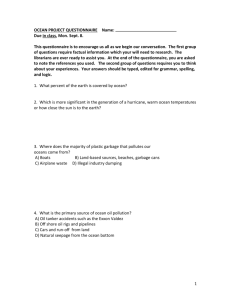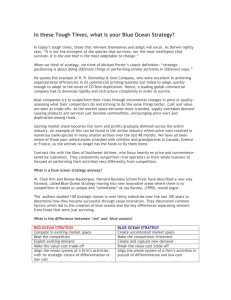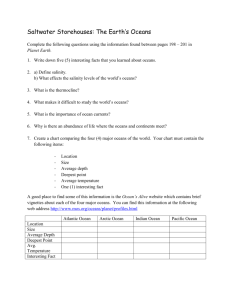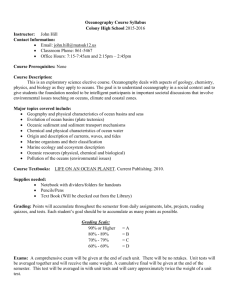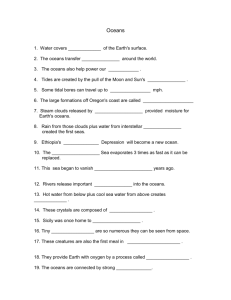APPLICATIONS & INVESTIGATION IN EARTH SCIENCE
advertisement
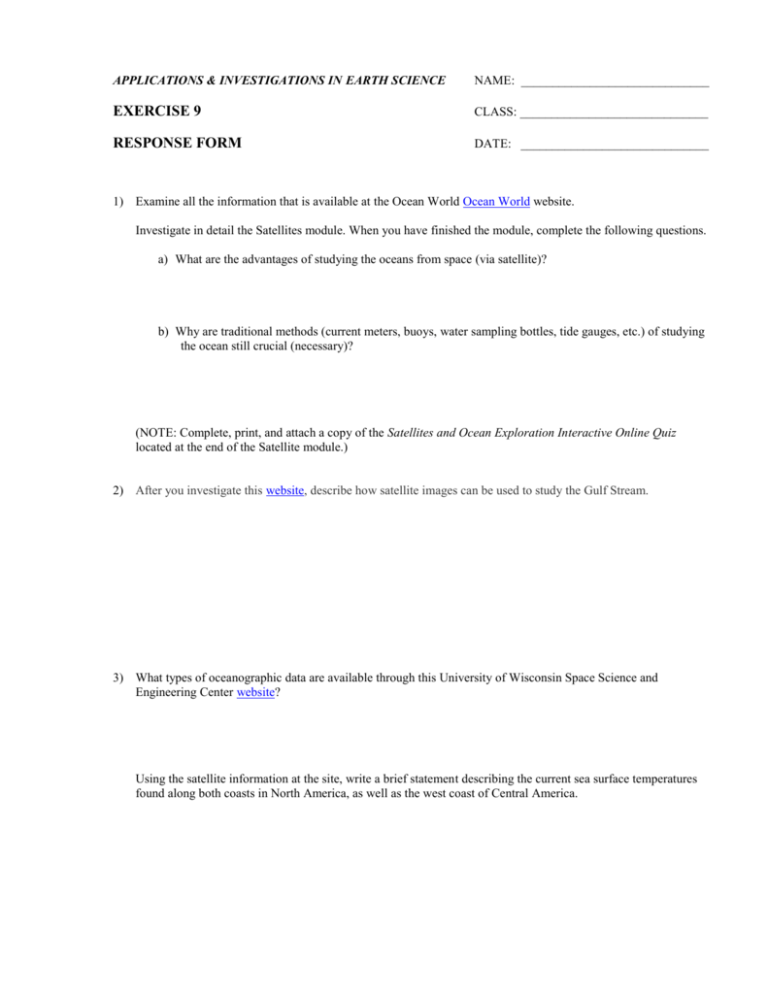
APPLICATIONS & INVESTIGATIONS IN EARTH SCIENCE NAME: ______________________________ EXERCISE 9 CLASS: ______________________________ RESPONSE FORM DATE: ______________________________ 1) Examine all the information that is available at the Ocean World Ocean World website. Investigate in detail the Satellites module. When you have finished the module, complete the following questions. a) What are the advantages of studying the oceans from space (via satellite)? b) Why are traditional methods (current meters, buoys, water sampling bottles, tide gauges, etc.) of studying the ocean still crucial (necessary)? (NOTE: Complete, print, and attach a copy of the Satellites and Ocean Exploration Interactive Online Quiz located at the end of the Satellite module.) 2) After you investigate this website, describe how satellite images can be used to study the Gulf Stream. 3) What types of oceanographic data are available through this University of Wisconsin Space Science and Engineering Center website? Using the satellite information at the site, write a brief statement describing the current sea surface temperatures found along both coasts in North America, as well as the west coast of Central America. 2 4) To help in your understanding of the chemical and physical processes of oceans, complete the Expedition 6: The Briny Deep module from Professor Don Reed's Geology 105 class at San Jose State University. When you have finished the exercise, write a brief summary of the experience. (NOTE: Print, complete, and attach a copy of the Expedition Handout to the Response Form.) 5) After you examine the information available at the National Aeronautics and Space Administration's (NASA) Earth Observatory website, answer the following questions. a) What are some of the recent events listed on the "Natural Hazards" page? c) What are two of the data sets and featured oceans images on the "Oceans" page? 6) After you examine the listing of weekly ocean news items at this American Meteorlogical Society website, write a brief summary of the major events.
